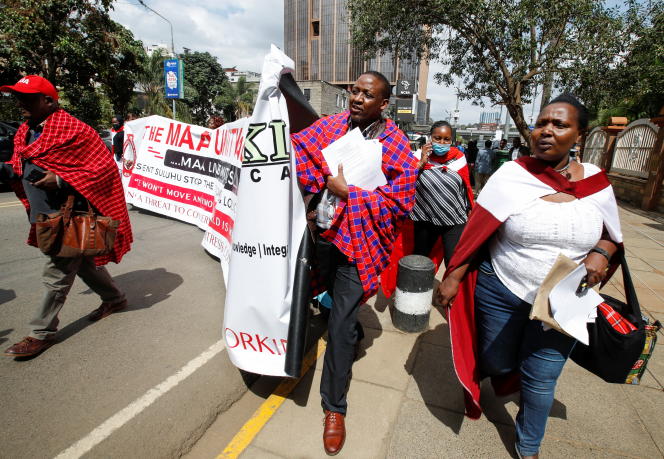On Wednesday, June 22, the Tanzanian government announced it was launching an operation against “illegal immigrants” in Loliondo, in the north of the country, on suspicion of Kenyan Maasai crossing the border to help the local community opposed to the creation of a protected natural area. .
The Maasai herders of Loliondo oppose the Tanzanian authorities, whom they accuse of wanting to expel them from part of their historic habitat area to make it an area reserved for safaris and private hunting. The government denies this and simply claims to want to protect 1,500 km2 out of the 4,000 km2 of this region located between the border with Kenya, the Serengeti Park and the Ngorongoro Nature Reserve from human activity.
The installation of “beacons” delimiting these 1,500 km2 gave rise to clashes on June 10, causing the death of a policeman and injuring 30 opponents after live ammunition fired by the security forces, according to experts of ONU. Twenty Maasai have been charged and the marking operation has been completed, tourism minister Pindi Chana and the prefect for the Arusha region, John Mongella, announced on Wednesday.
“Forced eviction”
The Maasai community lives astride Kenya and Tanzania and the government suspects Kenyans of coming to lend a hand to opponents of the government project.
“Following the directives of the Minister of Interior, we are going to carry out a special operation for ten days against illegal immigrants around Loliondo and in the Ngorongoro district as a whole,” said Wednesday the Commissioner General for Immigration, Anna Makakala. Interior Minister Hamad Masauni last week called for tough measures to curb “the influx of illegal immigrants, most of whom have driven their herds […] into the protected area of Loliondo.”
Local activists and human rights NGOs denounce government operations in Loliondo. Amnesty International called them an “unlawful forced eviction”, “shocking both in its scale and brutality”. Opponents appealed to the East African Court of Justice, which announced that its judgment expected on Wednesday was postponed “due to unavoidable circumstances”, without elaborating.
In 2009, thousands of Maasai families were moved from Loliondo to allow an Emirati safari company, Ortelo Business Corporation, to organize hunting expeditions there. The government canceled this agreement in 2017 after accusations of corruption.

















